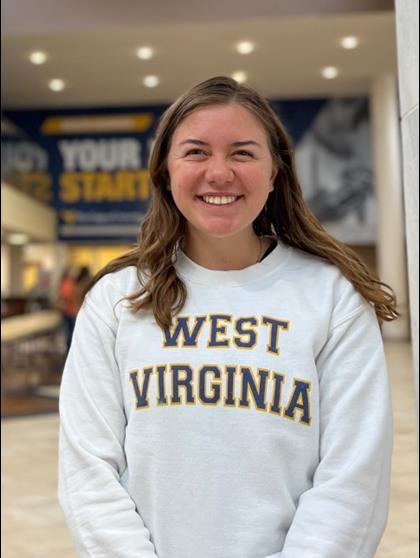Bachelor of Science
The BSN program is offered on WVU's Beckley, Keyser and Morgantown campuses.
The curriculum includes courses in humanities, social sciences, basic sciences and nursing science. These courses are taken in conjunction with nursing clinical courses. Students apply their learning to actual client, family and community situations that warrant nursing intervention. In keeping with the University's commitment to improving health care for all West Virginians, all health sciences students complete a rural clinical practice as part of the degree requirements. Nursing students complete rural clinical practice experience during their senior year.
Throughout the academic and clinical experiences, students will focus on the five core competencies that provide the framework for the BSN curriculum, including critical thinking, nursing interventions, professional role, caring, and communication which are outlined in more detail in our Student Handbook.
Want to learn more about our BSN program? Watch this recording from a recent BSN virtual open house.
Progression Plans
Depending on when you are admitted to the BSN program, the progression plan you follow in your time at WVU can vary slightly. Please view the different progression plans for more information. The BSN program is six semesters of clinical nursing courses after completion of all pre-requisite courses.
Simulation Experience
We offer the opportunity for students to learn in state-of-the-art simulation facilities where they practice patient care without fear of jeopardizing patient safety.
Frequently Asked Questions (FAQs)
View a full list of frequently asked questions and answers for nursing admission.
HSC Student Laptop Computer Program
As a student entering the BSN program at the sophomore level in the WVU School of Nursing, you will be among a group of students participating in the WVU Health Sciences Student Computer Program*. You will have access to computer resources to assist you in your studies, including a personal laptop computer, software, access to the Internet and to resources within the University, and on-site computer support. Direct admit freshman and pre-nursing students do not participate in the Computer Program until they are enrolled in the first semester of nursing courses in the sophomore year.
The laptop to be distributed is chosen by the School based on current nursing student feedback, faculty input and members of the Health Sciences Student Laptop Committee. This computer will cost each student a one-time payment in full at the beginning of the first semester in which the student enters the nursing program with the laptop being retained by the student upon graduation. The fee will be a separate line item on the student account and will be in addition to the tuition and fees. The cost of this required program is a recognized educational requirement and is included in financial aid calculations.
The laptop is used for testing as well as completion of course work in many of the nursing courses throughout the BSN curriculum. In order to better serve our students, the HSC ITS department provides on-site computer support day of testing should the need arise. For this reason, it is not possible for students to bring their own MacBook product and each student entering into the BSN program is required to participate in the Health Sciences Student Laptop Computer Program.
The cost for the 2021-2022 academic year is $1,947 for an Apple MacBook with a three-year warranty and insurance, onsite IT support, IT loaner program, MS Office Suite and anti-virus software installed, USB hard drive for backup, privacy screen and carrying sleeve.
For more information, please view the HSC ITS laptop support page.
*Please speak with representatives at the Beckley, Bridgeport, and Keyser locations regarding laptop requirements as they may differ from the Morgantown campus.

I remember before the vaccine came out, I helped with COVID-19 testing at the Mountainlair and Rec Center. As I put on all of the PPE and looked around the room at the other volunteers and staff, I couldn’t help but smile. No, I wasn’t excited about COVID-19, but that was the first time where I felt like a nurse. I felt like a part of the healthcare team, and I couldn’t wait to help people. It felt like I was a part of something bigger than myself.


